17-06-2019 | di COOPI
Iraq: clean water for 10,000 inhabitants
Al Shirqat - Salah Al Din is situated between Mosul and Tikrit, 300 km northwest of Baghdad – here, we contributed torestore water treatment systems and promote hygiene best practices, thanks to our "Restore WASH facilities and Hygiene promotion for vulnerable returnees in Centre/East Shirqat" funded by OCHA, which started in January and will end in July 2019.
After the Islamic State seized control between 2014 and 2016, the infrastructure had been severely damaged or completely destroyed – this later on resulted in the loss of livelihoods and in the increase of the level of insecurity and in the number of IDPs.
Drinking water for 7 villages
In Al Shirqat district, the Tigris water purification plants have always been used as a primary source of water. However, after being plundered by ISIS militias, the population was forced to look for water elsewhere, relying on unsafe sources, once moved back to their area of origin.
Therefore, diseases related to poor hygiene and poor water quality, such as acute diarrhoea, typhoid fever and scabies, increased.
Therefore, access to safe water for returnees and host communities – 15% and 85% of the project’s beneficiaries – will contribute to improve their health. To achieve this, we have rebuilt water treatment plants according to different purification stages and installed 2 km of polyurethane foam pipes and stand-pipes. 10,000 inhabitants of the seven villages involved will now have access to clean and purified water.
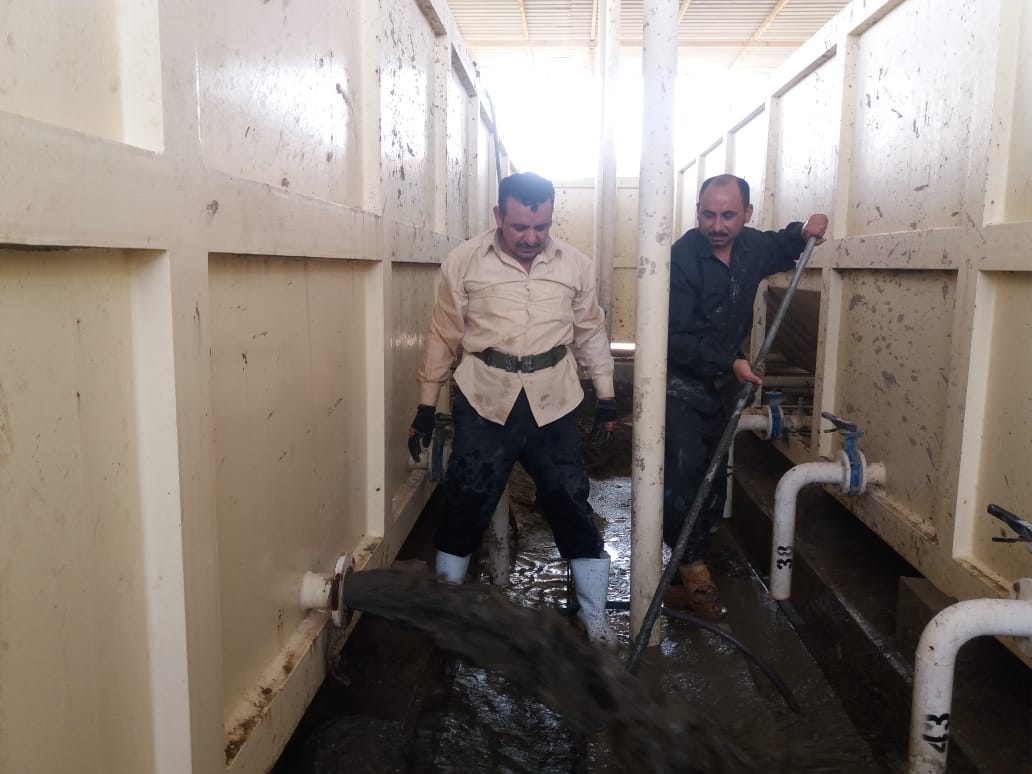
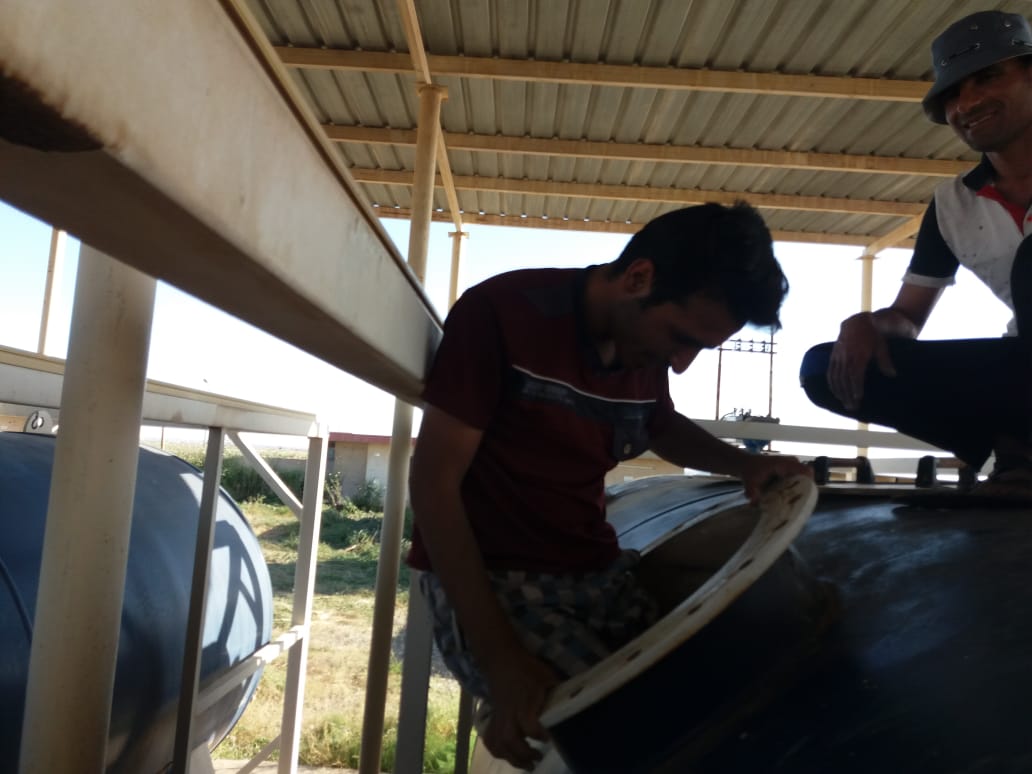
Operators working on the rehabilitation of the water plant systems, in the Al Shirqat district
For the project to be sustainable in the long run, we have directly involved the operators of the plants and the local water management authorities, by organising training sessions and providing them with adequate tools to ensure full operation of the facilities.
The participatory approach - the key to a successful training
As Roberto Ferracci, COOPI project leader in Iraq, points out: "Given our consolidated know-how in education in emergency projects, the local community proved to be happily involved in designing further integrated activities - related to water and sanitation cluster - with us. They also appreciated our approach to listen and respect local cultural and social habits."
Our awareness campaigns have adopted a participatory approach. Firstly, it allowed us to focus on water, sanitization and hygiene priorities. Secondly, it contributed to determine which sanitation items and hygiene products were the most used and accepted by the community, so as to include them during the distribution activities.
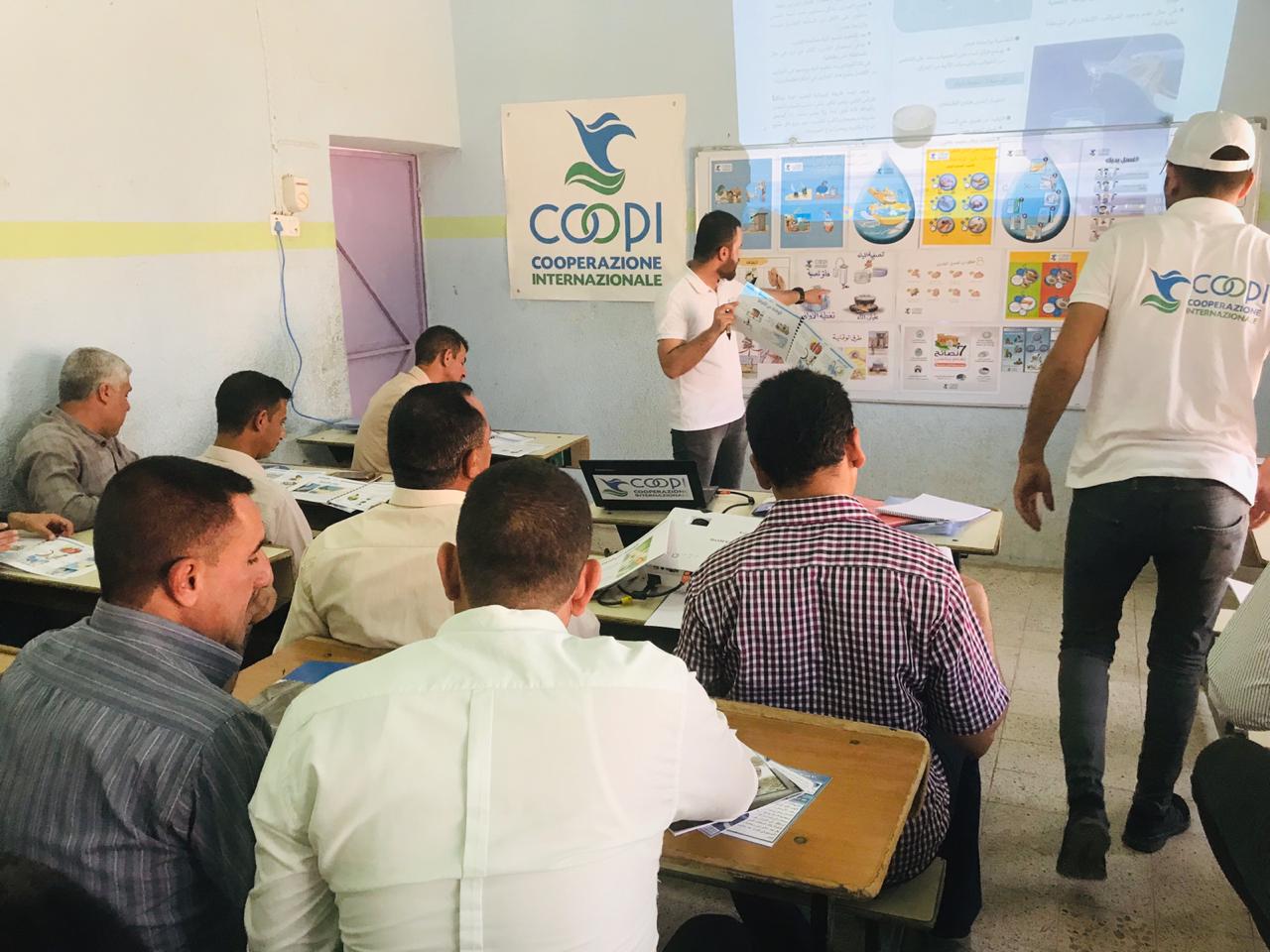
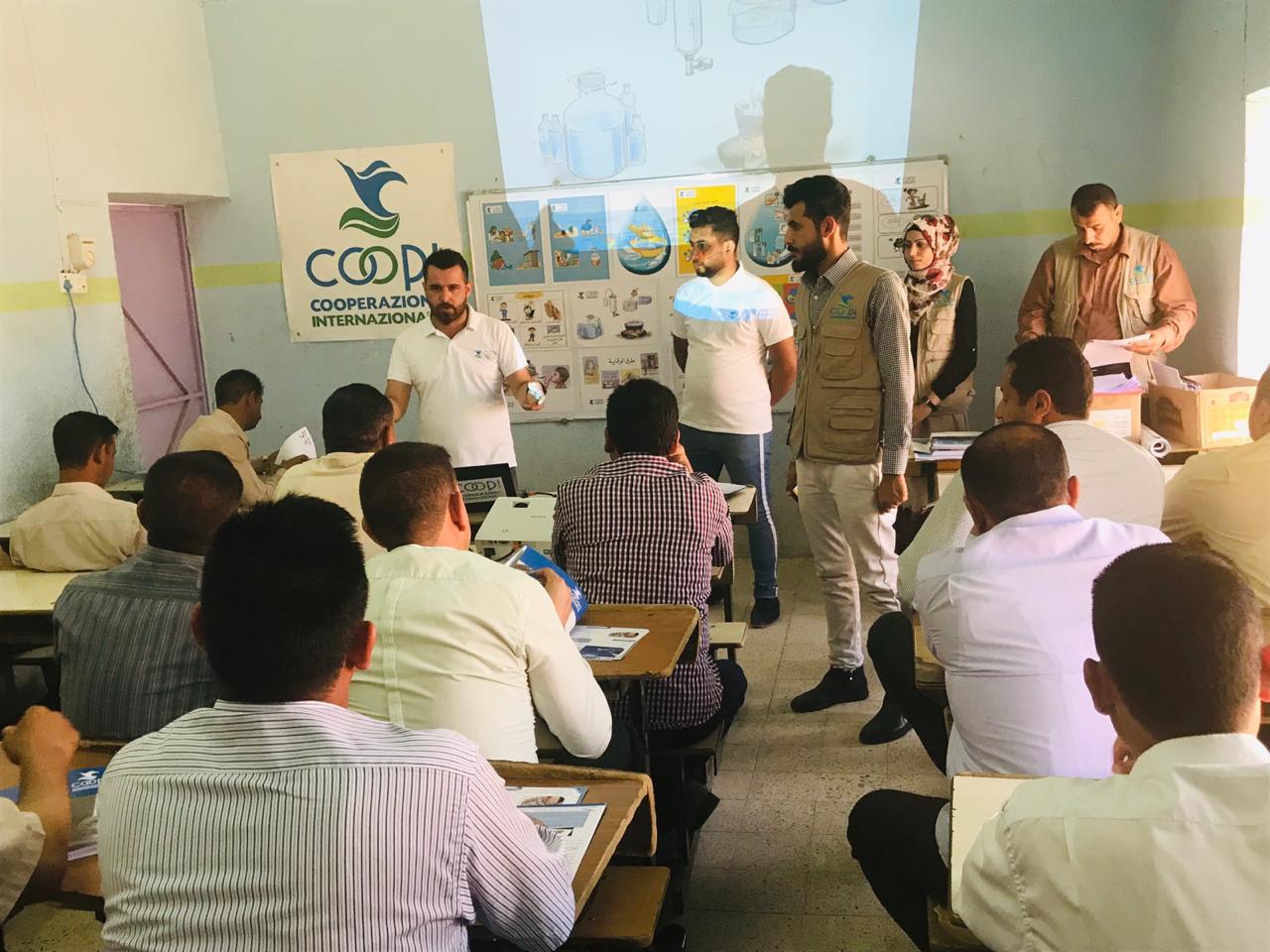
Awareness campaign sessions on hygiene and sanitation - 50 teachers were trained on hygiene best practices
Following this logic, awareness campaigns differed in terms of beneficiaries. Specifically, 50 teachers were trained and provided with tools to conduct awareness sessions for students. To date, 260 primary school children have benefited from campaigns on environmental and personal hygiene, where they have been taught how to use hygiene products properly, by playing games and singing songs. Their fathers have also been benefited from training sessions on how to treat and secure their domestic supply sources.
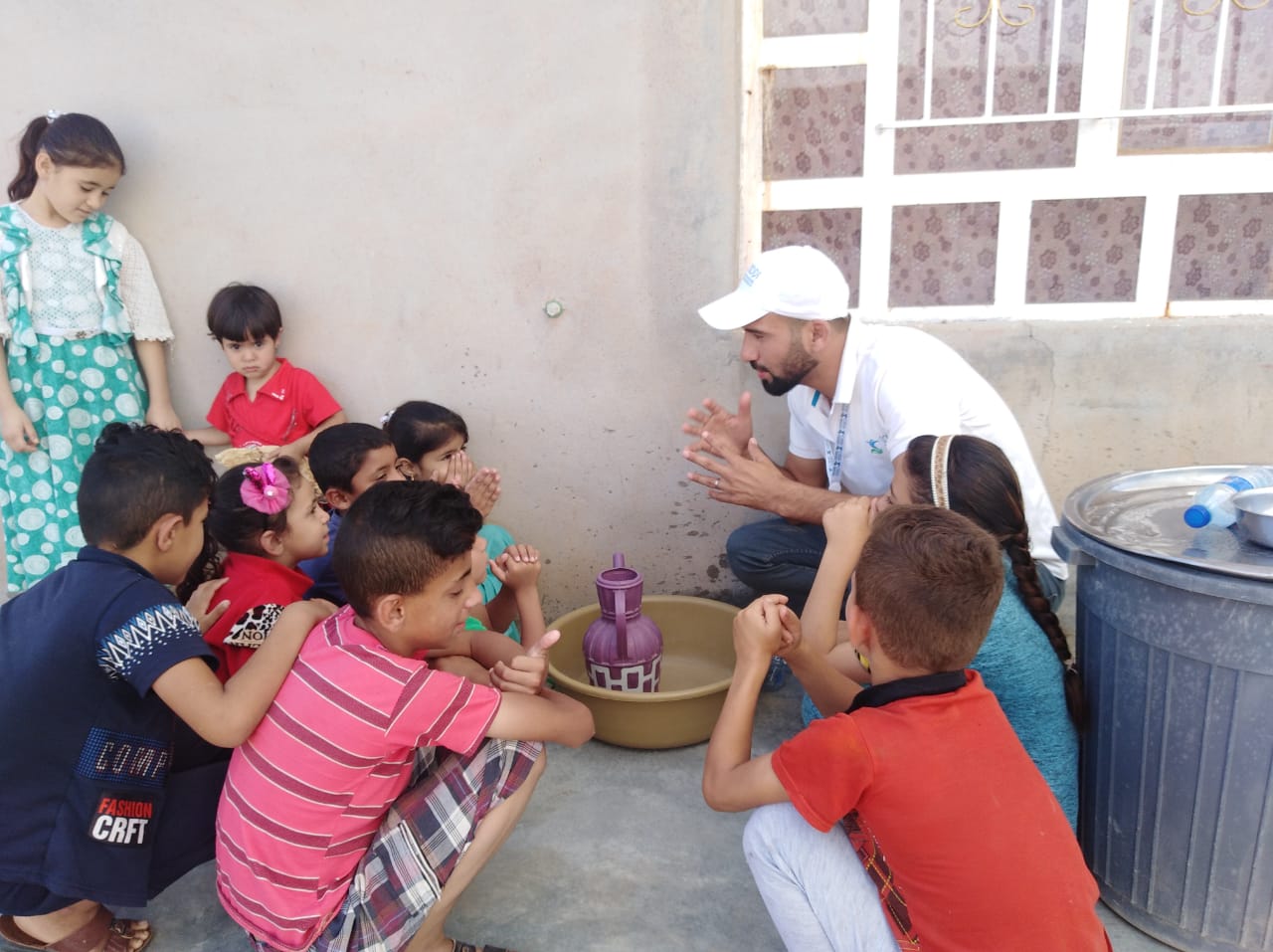
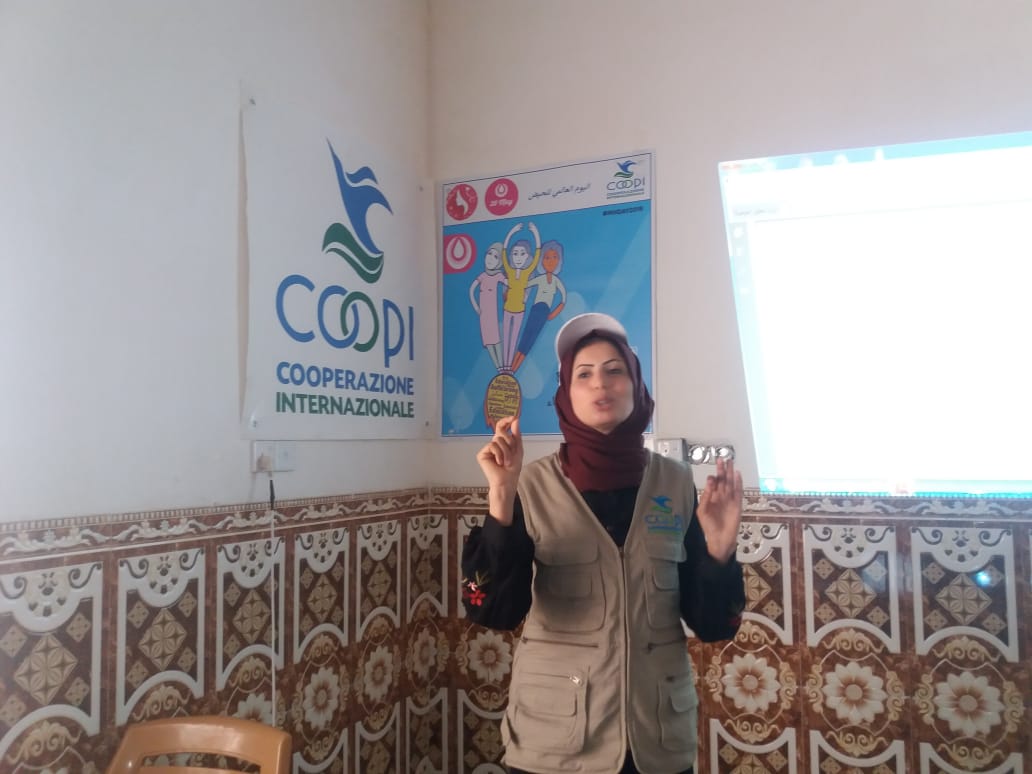
260 primary school children were taught best practices on hygiene and 70 women were trained on menstrual hygiene
We have also carried out 5 awareness sessions, involving 70 women, specifically designed to discuss menstrual hygiene. This topic, which is still stigmatised and difficult to talk about, was brought about on May 28th, the Menstrual Hygiene Day.
COOPI pledges to promote the durability and sustainability of interventions in this area. In fact, there are many plants that need to be rehabilitated and skills to be supported and enhanced.
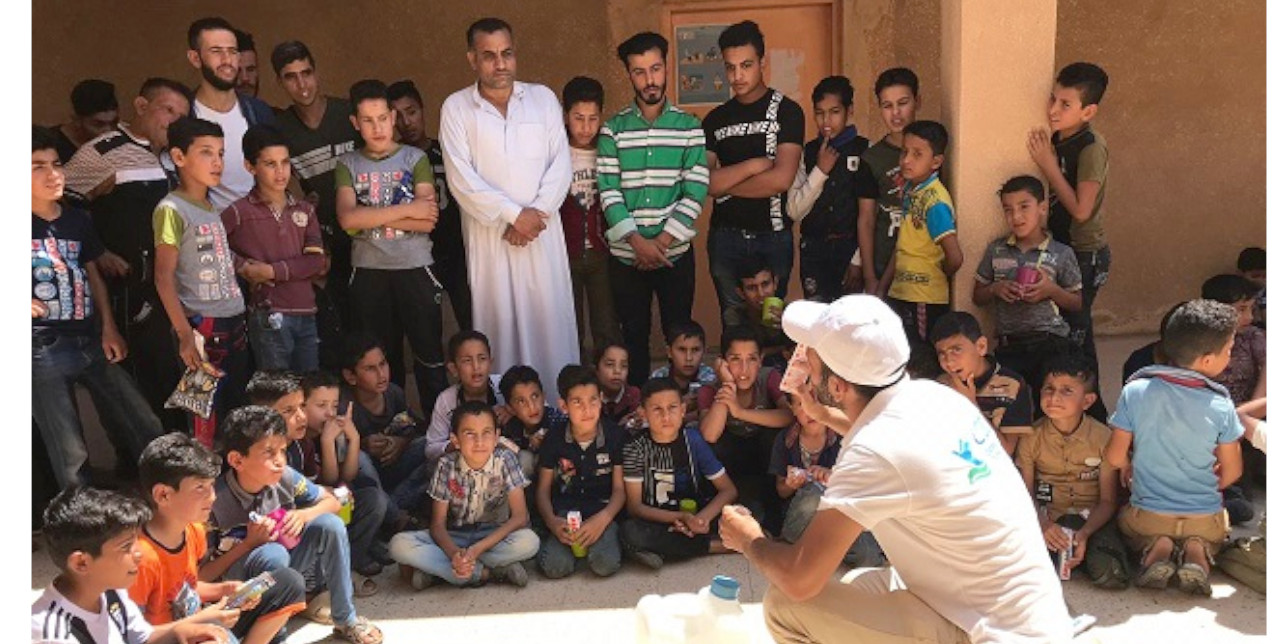



 Iraq
Iraq